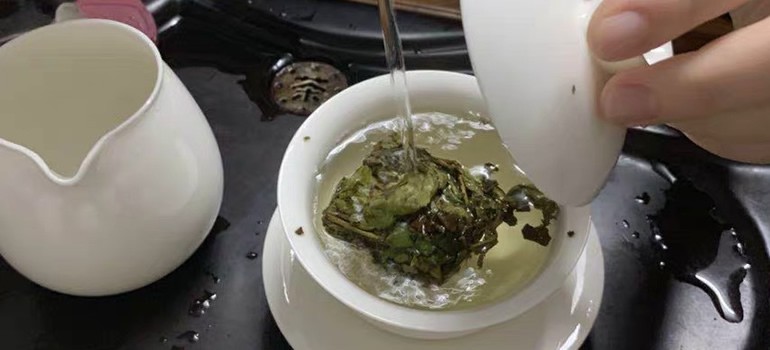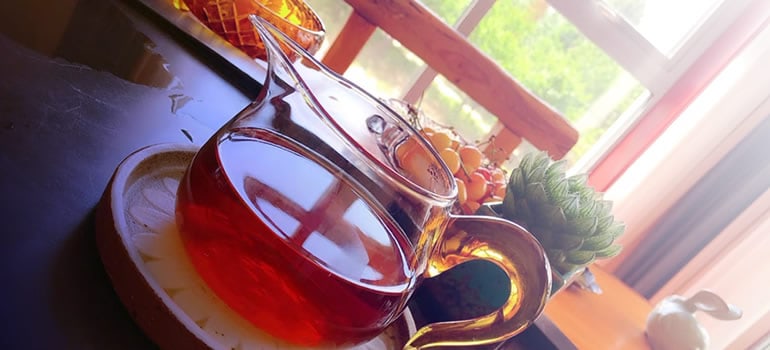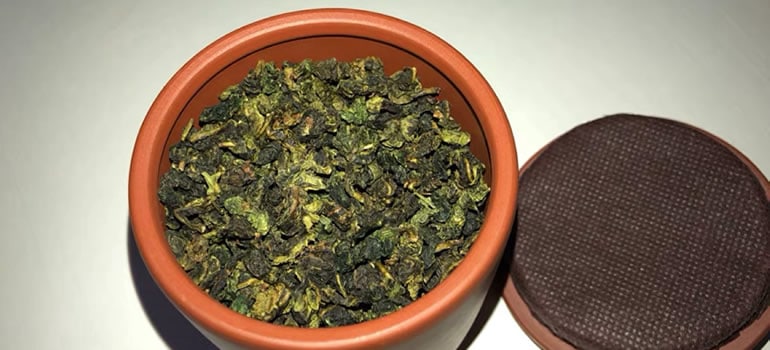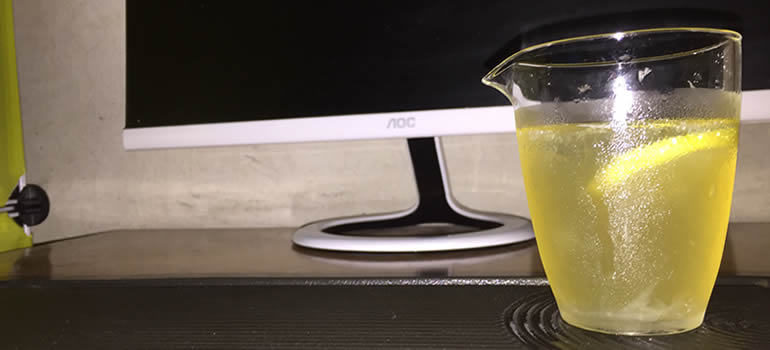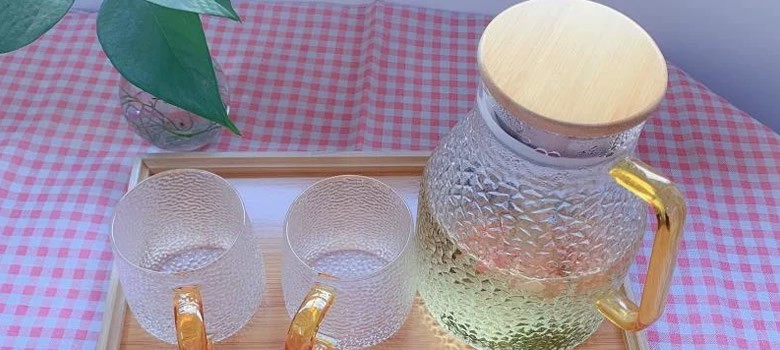
Every now and then, it just so happens that we forget about our cup of tea.
Maybe you have been warned against reheating tea. Or if you are a tea connoisseur, this goes without saying; you will not reheat it.
But what are we supposed to do with a cold cup of tea? Throwing it away seems like a wasteful thing to do, doesn’t it?
Reheating tea certainly has some advantages to it. It can save us some money, and it can even reduce our carbon emissions footprint. And isn’t this an interesting idea.
However, what you may be concerned about is how safe it is to drink old and reheated tea.
So can you, and should you, reheat tea? You can reheat tea. However, this takes away many of its flavor, aroma, and nutritional qualities. Reheating tea that has stayed for more than eight hours is not recommended, because bacteria and mold may have started growing in it. Adding milk or sugar to your tea can speed up that process even more.
Leaving your tea unattended for hours is something that can happen to anybody.
But by better understanding what happens inside your cuppa tea is the best way to find out whether or not you should reheat your tea.
That way, you can reduce any risks associated with drinking old and reheated tea.
If you are curious to find out more, read on.
What Happens to Your Tea When You Reheat It?
Undoubtedly, there will be one significant disadvantage when it comes to reheating tea.
Regardless of what kind of tea you have – an herbal tea, a true tea, or a fruity tea – reheating it will take away from its aromatic, flavor, and medicinal properties.
Some of the compounds found in tea are known to be volatile. Which, in simple terms, means that these compounds are unstable and may vaporize when subjected to excessive heat.
This has already happened once during the initial preparation of your tea. And now, by reheating it again, you can lose even more of these compounds.
The essential oils in tea, for example, are known to be volatile. This means it is highly likely that by reheating the tea, it will lose much of its unique aroma.
Other compounds found in the tea and herbs are known to be labile. These elements are highly likely to break down in the presence of heat, as well.
Unfortunately, even though we do know a lot about the different chemical reactions that take place inside our cuppa tea, this area still lacks a lot of data, and more research needs to be done.
Can You Drink Reheated Old Tea?
Tea has to be consumed after brewing. Leaving it to sit until it gets cold takes away much from its flavor and nutrient qualities.
If the tea has been sitting for 10 or 15 minutes and has just gone cold, you can drink it.
However, it won’t taste as good, and some of the more delicate flavors and aromas will be long gone taking away from the whole experience.
The rule of thumb is not to drink tea that has been sitting for more than four to eight hours at room temperature. Even leaving it for an hour or two can be enough for bacteria to start growing in it.
Does Brewed Tea Go Bad?
Eventually, every cup of brewed tea will spoil. It will look murky, and the taste will be off.
If the tea has been left at room temperature, make sure to drink it immediately or up to half an hour after brewing for the best results.
If you want to store the tea for later, you can put it in the fridge. However, even this doesn’t mean the tea can stay in the fridge forever.
Back in 1996, the Centers for Disease Control and Prevention (CDC) stated that tea must not be kept in a fridge for more than 8 hours.
Conversely, if you refrigerate your tea as soon as possible and keep it in a clean airtight container, you may be able to store it for even longer than that.
Some people have been suggesting storing tea that way will keep it good for up to 48 hours or even a week. However, I do not recommend this.
Keep in mind that if you have added any sugar, sweeteners, milk, or fruits to your tea, this time period will be severely affected, and your tea will go bad sooner.
Also, during the summer, when the temperatures are generally high, this can further speed up the spoiling process.
How to Find out If My Tea Has Gone Bad?
The best way to find out if the tea has gone off is by taking a look at it. This is best done with a glass container.
Look for any signs of mold.
If there is no mold, there is a good chance the tea is safe for consumption.
Also, check the overall color of the tea. With time, and as tea goes bad, it will start to darken. It will become cloudy and murky.
If your tea has milk added to it, a crust will start forming.
Another way to tell if your tea has spoiled is by taking a small sip from it. Tasting it is always a sure-fire way to find out whether or not it is still drinkable. If it tastes off, just treat yourself with a new freshly brewed cuppa tea.
If you are still not sure, or if you don’t want to taste it, I recommend just making a new cup of tea.
Although the risks may be low, there really is no need to take any chances with your health.
Can You Reheat Tea with Milk?
You prepared your tea, added milk, but something happened. You forgot about your tea and not it is cold. What do you do?
It depends on the time your tea has been left unattended. If that was like 10-15 minutes ago, it might be safe to reheat your tea ever so slightly and drink it.
However, the official statement from the Health Department states that after a few hours, the tea is not safe because pathogens, mold, and other bacteria may have started growing in the tea.
Not to mention, the milk itself may have started to spoil. If you have used pasteurized milk, you should be able to smell and taste the difference between good and bad milk.
In any case, drinking old tea is not recommended much less old tea with milk in it. I would recommend making a new cup of tea. It will taste a lot better anyway, and you will not be risking your health.
Can You Reheat Overnight Tea?
If your cup of tea has been sitting unattended at room temperature during the whole night, it is not recommended to drink it, especially if you have added any sugar or milk to it.
It has had enough time to spoil and get really nasty.
On the other hand, if you have kept the tea refrigerated in an airtight container for the night, it may taste a little more bitter and bland, but it could still be suitable for consumption.
Can You Reheat Sweetened Tea?
Leaving sweetened tea to sit at room temperature for a long time is, generally speaking, a bad idea. Here’s why.
Sweet tea has, besides the tea itself, sugar. And sugar changes the environment in your cup of tea significantly. In fact, sugar is the perfect food source for bacteria to feed on. Other than that, your tea can even start fermenting with time.
Give it enough time, and your tea will definitely turn into a liquid that should not be consumed.
To reduce the chances of your sweetened tea going bad, make sure to refrigerate it as soon as possible.
Keep the tea, if possible, in an airtight container, which doesn’t allow light to pass through it.
That way, you will slow down the process of fermentation and oxidation.
How to Reheat Tea?
I personally avoid reheating tea. I always try to do just enough amounts of tea that I know I will be able to drink while the tea is still warm, flavorful, and fresh.
We drink tea for more than its health qualities.
We drink it for its aroma and flavor.
But, with that being said, every now and then, you may want to finish up your long-forgotten cup of tea, or you may have prepared a whole batch of tea that you don’t want to throw away.
So let’s explore what would be the best way to reheat tea.
Can You Reheat Tea in the Microwave?
Microwaving your tea is an easy and readily-available way you can use to reheat tea.
In fact, many people even boil their tea in the microwave. But how good is a microwave for reheating tea?
The microwave can make your cuppa tea really hot. There is no doubt about that. However, you will have a hard time controlling the temperature of the tea. In addition to that, the microwave may not be able to reheat your tea evenly.
If you don’t have any other choice, a microwave will do. But don’t expect any miracles, both flavor, and taste-wise.
It is usually recommended to adjust the microwave to 1100 watts and start reheating your cup of tea in 30-second periods. After each 30-second period, check the tea temperature in order to make sure it is not getting too hot.
A few words of caution: (1) keep in mind that the mug will get really hot and may burn your hands, so take extra caution, and (2) place your cup on the outer part of the microwave turntable plate, so it does not stay in one place in the middle.
But is microwaving your tea bad?
This is a very controversial topic. There are a lot of studies done on the safety of microwaves. Many suggest microwaves are potentially dangerous, while others suggest they are safe.
Even to this day, things are relatively vague.
Microwaving your tea (or even food) has been associated with a wide number of adverse effects. So using a microwave, in general, may not be a good thing.
EMF (electric and magnetic fields) radiation is often an overlooked subject. EMF exposure has been associated with some adverse effects on human health and can potentially be another point against using a microwave.
Can You Reheat Tea in a Teapot?
This is probably the best way to reheat tea while minimizing the ‘damage’ to the tea’s flavor and quality.
One of the problems with microwave reheating, as we just saw, was that you are not able to control the temperature. And the microwave may not even be able to warm your cuppa tea evenly as well.
Reheating your tea in a teapot (and on a stovetop), you have more control on the reheating process temperature-wise.
You don’t want to reach high temperatures when reheating your tea.
Some teas like white, green, and oolong tea should not be prepared with boiling water. So you need to be careful not to bring the tea to boil while reheating it.
Can You Reheat Tea in Electric Kettle?
I would not recommend reheating your tea in an electric kettle for the simple reason that you cannot control the temperature of the water.
The electric kettle will bring the tea to boil quite quickly, which will further make it lose its flavor and taste.
Some teas should never be steeped in boiling water as this simply cooks the tea.
If you have no other option but to use your electric kettle, I would recommend keeping an eye on it the whole time and manually switching it off before it gets to a boil.
Can You Drink Old Tea Without Reheating It?
By now, you should have a good understanding of when to and not to reheat tea.
You can drink tea that has gone cold without reheating it. However, make sure not to drink tea that has been left sitting somewhere for hours. As previously mentioned, even eight hours in the fridge may be too much in some cases.
Some people do enjoy their tea cold, and if you are one of them, then maybe the weaker flavor and aroma may not really bother you.
If you have left the tea bag or the tea leaves inside the tea for a longer time, this can make the tea very bitter-tasting and astringent. The tea will become murky and very dark. And it is best not to drink it.
Should You Reheat Tea?
As you can see, you can reheat tea, but should you?
On the one hand, it may be a good practice that can save you a tiny bit of money in the long run. This can be good for both you and the environment.
However, on the other hand, tea is made to be enjoyed. And can you truly enjoy a cup of old reheated tea? Probably not.
And lastly, teas that are known to have medicinal properties should generally not be reheated as you are risking lowering their beneficial properties even more.
Dangers of Reheating Tea
The main hazard of reheating tea is that it may have been exposed to bacteria and germs.
The food-poisoning bacteria, for example, grows at temperatures between 41 to 140 degrees Fahrenheit. Which incorporates all the temperatures the tea will be subjected to throughout its life.
One of the problems comes from reheating milk. Reheating it for a second time can make it unpleasant to drink with a very grainy texture, and it will make it spoil even faster.
Additionally, if the milk has already been exposed to bacteria, simply reheating it will not kill off the bacteria.
Overall, tea is not going to poison you. In the worst-case scenario, if you reheat and drink old tea that has been sitting on the countertop for a while, you can get stomach upset.
The next point of concern is that given enough time and the right conditions, tea can become moldy.
Drinking moldy tea can lead to a host of different problems. Usually, the stomach acid can neutralize and kill the small pieces of mold you may have consumed with your tea.
But that may not always be the case. Some people may experience diarrhea, stomach cramps, nausea, inflammation, and so much more.
What Is the Rainbow-Y Layer That Develops on Tea’s Surface?
The more a cup of tea sits unattended, the higher the chance is to witness a phenomenon called thin-film diffraction. This is a natural phenomenon that occurs as the light reflects from a thin film layer.
The colorful layer on the surface of your tea is most likely oil. It is not something inherently dangerous as this oil is used for flavoring tea.
Resources:
http://sites.psu.edu/kff5054eportfolio/wp-content/uploads/sites/42497/2016/03/Bacterial-Growth-and-Morphology-From-Tea.pdf

